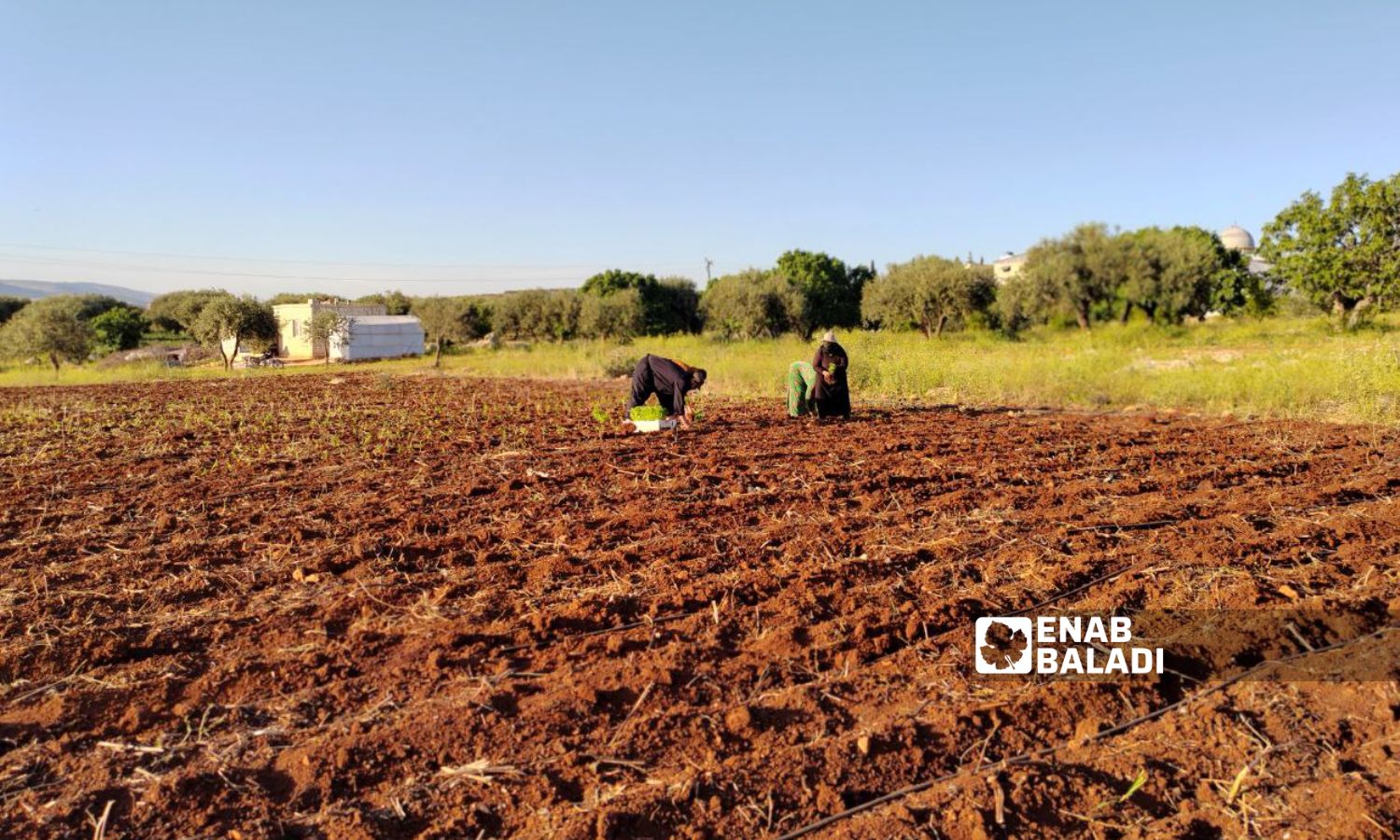



Idlib – Abdul Karim al-Thalji
The villages and towns of the northwestern Jabal al-Zawiya region have been subjected to almost daily bombardment by the regime forces and allied militias.
The opposition-held mountainous enclave is also witnessing continuous infiltration and raids by both the regime and the opposition, which caused instability for the residents but it reflects in depth the reality of the conflict over an area of great military and economic importance that could change the equation in northwestern Syria.
With reports of possible understandings between Turkey and the Syrian regime, with Russian facilitation and mediation, military analysts and experts are wondering about the possibility of handing over Jabal al-Zawiya to the Syrian regime as part of the understandings or the regime’s ability to militarily control a wide and rugged area that includes dozens of villages and thousands of local fighters.
Jabal al-Zawiya is located on the southern borders of Idlib and in the north of Hama governorate, which gave it strategic importance to the regime and the opposition alike, as it overlooks the international road M4 linking Aleppo governorate and the coastal areas in western Syria, and the regime has repeatedly sought to control it, and it is described as Idlib’s safety valve.
Jabal al-Zawiya also overlooks large areas, and it is of rugged nature, adjacent to the Arbaeen Mountains to the north and Shahshabo to the south.
The military analyst, Brigadier General Abdul-Jabbar al-Aqaidi, believes that the mountain is of great importance because it is an elevated area with rugged terrain, and it helps resistance.
Al-Aqaidi believes that the fall of Jabal al-Zawiya in the hands of the regime forces will lead to the fall of the rest of the liberated areas from Jisr al-Shughour, west of Idlib, to the al-Ghab Plain, north of Hama, in addition to Idlib city, the main stronghold of the Syrian opposition, which will not be safe from the fire of the regime forces.
Al-Aqaidi told Enab Baladi that the mountain area is large, as it includes 35 villages and towns, and its importance stems from the fact that controlling it ultimately means controlling the M4 international highway and tightening control over the M5 road, which the regime forces took control of in early 2020, following a wide-scale military operation.
The expert added that this would strengthen the regime’s control over international roads and target the factions in the area so that they would be in the range of the regime’s fire, not the other way around.
“There is nothing excluded in politics,” al-Aqaidi said, in response to a question about the possibility of the regime taking control of the mountain, especially after the “sharp turn” of Turkey and some Arab countries, including Saudi Arabia, towards normalization with the regime.
Al-Aqaidi based his opinion on the regime forces’ previous control over areas where Turkish forces were present, expecting a large wave of displacement towards Turkey and Europe in the event of the fall of the region.
At the end of 2019, Turkey sought to reinforce its forces in northwestern Syria and sent large military reinforcements along the engagement lines with the regime, especially on the fronts of the southern countryside of Idlib and the northern countryside of Hama city, after its withdrawal from the observation points of the Russia-Turkey “de-escalation” agreement in each of the villages of al-Eis, Morek, al-Rashideen, Khan Sheikhoun, al-Surman, and Ma’ar Hatat.
Al-Aqaidi believes that Turkey will not easily give up the Jabal al-Zawiya region, given that its forces are spread over a large area in the region and on the international road (Aleppo-Latakia) and because the Turkish forces are massed with thousands of soldiers, and the rugged terrain in the mountain makes the task of the regime and its militias difficult in case it intends to storm the area.
Brigadier General Ahmed Rahal agrees with al-Aqaidi on the strategic importance of Jabal al-Zawiya and the difficulty of the regime’s control of the region due to its ruggedness, adding to that the advantage of having the people of the region as fighters on its fronts, which makes the task difficult, as a few hundred fighters are able to resist thousands of regime forces, in addition to the lack of political consensus between Turkey, Russia, and Iran on the region, he told Enab Baladi.
The regime forces stopped at the doorstep of Jabal al-Zawiya, following the military operation in late 2019.
Also, the region is mainly subject to the “de-escalation” understandings, which were included in the Astana talks in the first place.
The political activist residing in Idlib, Abdul-Karim al-Omar, spoke to Enab Baladi about the impact of the Turkish presence on Jabal al-Zawiya and the fronts south of Idlib and western Aleppo in general, as tens of thousands of Turkish soldiers are deployed, and the M4 international highway is under the control of its military units on both sides of the road.
Al-Omar said that it is clear that the weapons in the area are offensive equipment, as the forces are equipped with offensive missile bases, which is an indication of the readiness to respond against any possible military operation by the regime and its allies.
Regarding the reason for the Turkish forces’ adherence to the region, al-Omar believes that Turkey controls the Aleppo-Latakia road and wants to strengthen its position through negotiations with Russia so that it sets conditions, not the other way around.
Al-Omar indicated that the regime-opposition talks in Astana and Sochi always stress the need to open international roads and that what happened in northern Syria took place within the framework of political understandings between the Russians and the Turks.
“It is clear that each party does not want to implement obligations towards the other,” al-Omar concluded.
if you think the article contain wrong information or you have additional details Send Correction